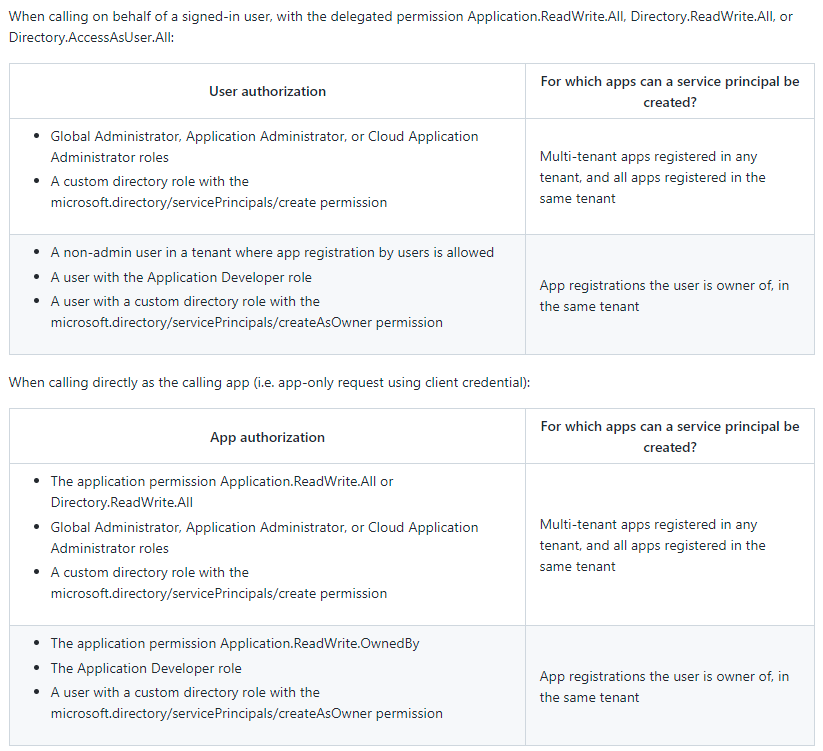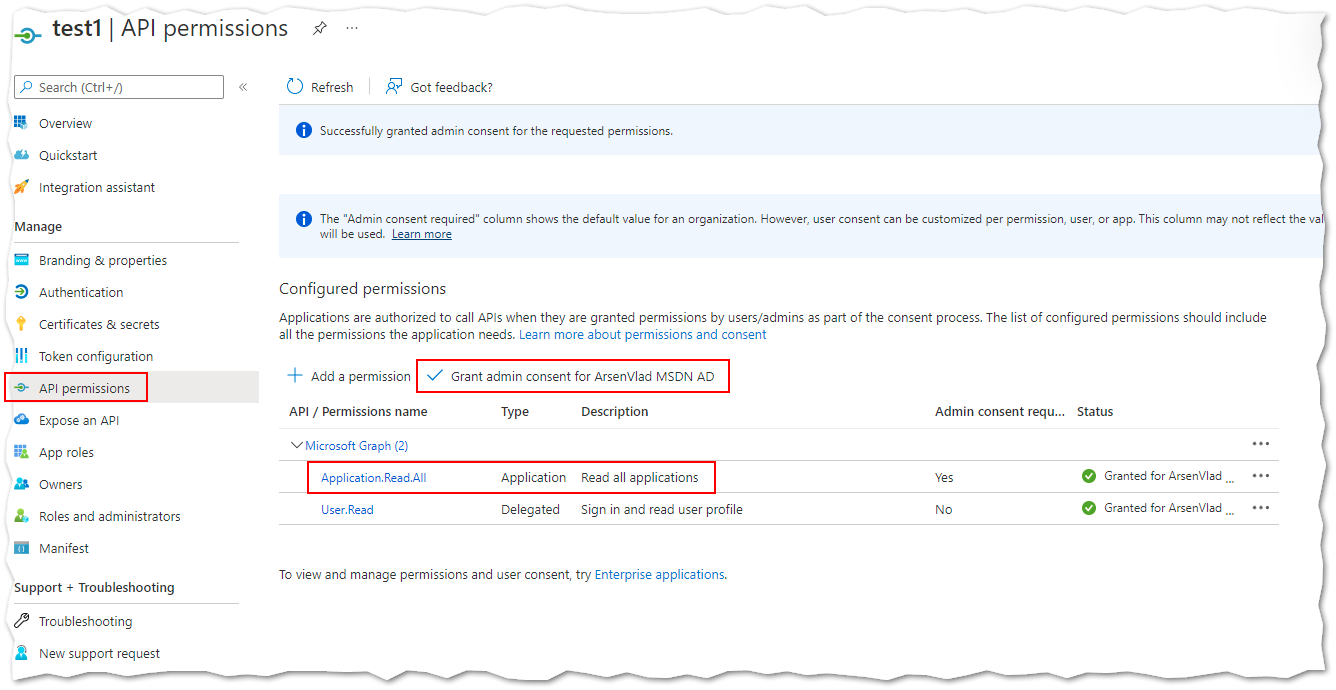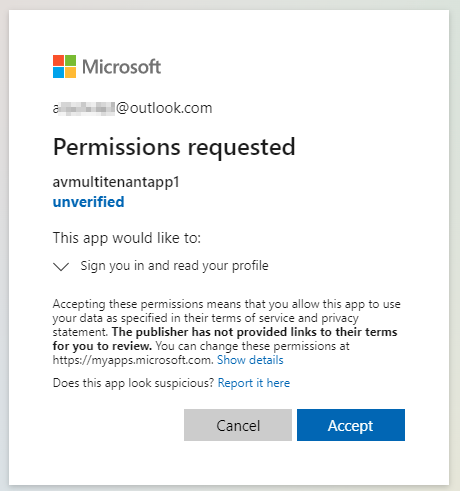Azure AD least-privilege permission for creating service principal from a multi-tenant application registration in another Azure AD tenant
In this sample, we look at what is the least-privilege permission or Azure AD role that an app identity needs to be able to create a Service Principal from a multi-tenant application registration in another Azure AD tenant. See related video at Azure AD least-privilege permission for creating Service Principal from a multi-tenant application registration in another tenant.
By least-privilege we mean that we don't want our app identity to have the Application Administrator or Cloud Application Administrator roles at the scope of the full directory and don't want it to be able to delete or update service principals.
An example scenario for this requirement is a Continuous Integration (CI) testing automation workload that needs to create Service Principals from another Azure AD tenant programmatically - but we don't want this CI app identity to have full application admin access.
Currently in July 2022, Microsoft Graph REST API document Create servicePrincipals says that in order to create cross-tenant service principals the app identity must be assigned Cloud Application Administrator or Application Administrator role. However, there is an open GitHub issue that provides more details about corrections that need to be made to that document:
As we can see from the table above, the only least-privilege option we have is to give our app identity a custom Azure Active Directory role that includes the microsoft.directory/servicePrincipals/create permission (full list of app permissions). Note that to be able to create custom roles in Azure AD, we need to have Azure AD Premium P1 or P2 licenses.
We cannot use the Application.ReadWrite.OwnedBy app permission because it is not sufficient to be able to create service principals from app registrations in another Azure AD tenant.
Below are steps for a quick experiment to validate that app identity with Azure AD custom role that includes only the microsoft.directory/servicePrincipals/create can successfully create cross-tenant service principals, but cannot read or delete the created principal.
Create our app identity that we will experiment with (https://docs.microsoft.com/azure/active-directory/develop/howto-create-service-principal-portal)
Create the custom role in Azure AD (https://docs.microsoft.com/en-us/azure/active-directory/roles/custom-create)
az rest --method POST --url https://graph.microsoft.com/v1.0/roleManagement/directory/roleDefinitions --body '@aad-custom-role-sp-creator.json' -o jsonAssign the custom role to our app identity (https://docs.microsoft.com/en-us/azure/active-directory/roles/custom-create#assign-a-custom-role-scoped-to-a-resource)
az rest --method POST --url https://graph.microsoft.com/v1.0/roleManagement/directory/roleAssignments --body "{\"principalId\": \"OUR_SERVICE_PRINCIPAL_OBJECT_ID\",\"roleDefinitionId\": \"ID_OF_THE_ROLE_CREATED_ABOVE\", \"directoryScopeId\": \"/\"}"Login using our app identity
az login --service-principal -u OUR_APPLICATION_ID --password '' --tenant dd74924a-88ce-421a-ac87-00fc9dbe4baf --allow-no-subscriptionsCreate service principal from a multi-tenant application registration (e.g., 9938aa28-a37e-4ba3-8eb5-43228ce62080) in another tenant
az rest --method POST --url https://graph.microsoft.com/v1.0/servicePrincipals --headers Content-type=application/json --body "{\"appId\": \"MULTITENANT_APP_ID\"}" -o jsonTry reading the service principal information, which should fail since our app identity doesn't have read permissions
az rest --method GET --url https://graph.microsoft.com/v1.0/servicePrincipals/SERVICE_PRINCIPAL_ID -o jsonTo be able to read the cross-tenant service principals that our workload creates, we would also need to give it the Application.Read.All app permission or additional custom role permission like microsoft.directory/servicePrincipals/allProperties/read. This would enable our workload identity to read properties of all service principals.
Note that when making changes to permissions of an already existing app identity you would need to re-login and wait some time for the cache to refresh and new permissions to apply. I saw it take up to 1 hour. Therefore, while experimenting, instead of making a change and waiting, it could be faster to create a new app identity and to use it instead.
After we are done with the experiments, delete the objects created above: our test service principal, custom role, and the multi-tenant service principal.
The experiment above describes how an application can programmatically create a service principal after an implicit consent. If it is a user (i.e., not application), that needs to create the service principal, the user can use can grant the required permissions via Azure AD consent page by visiting:


